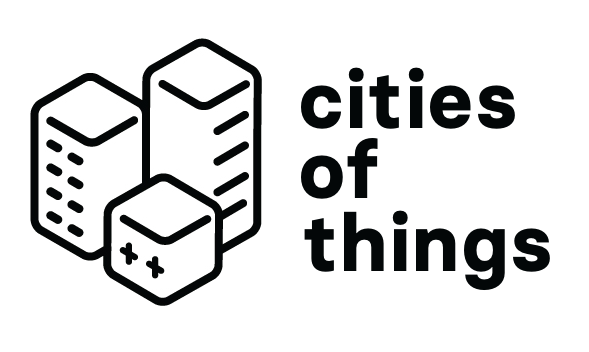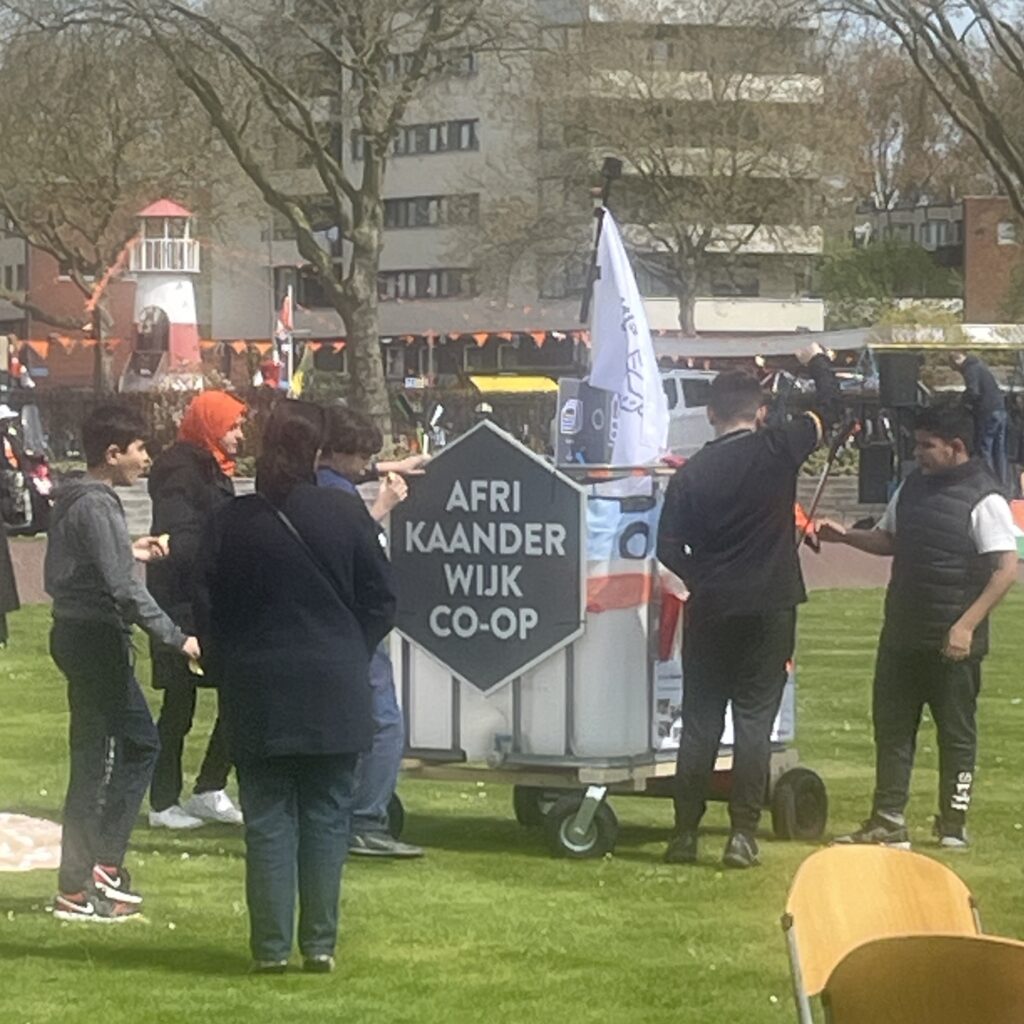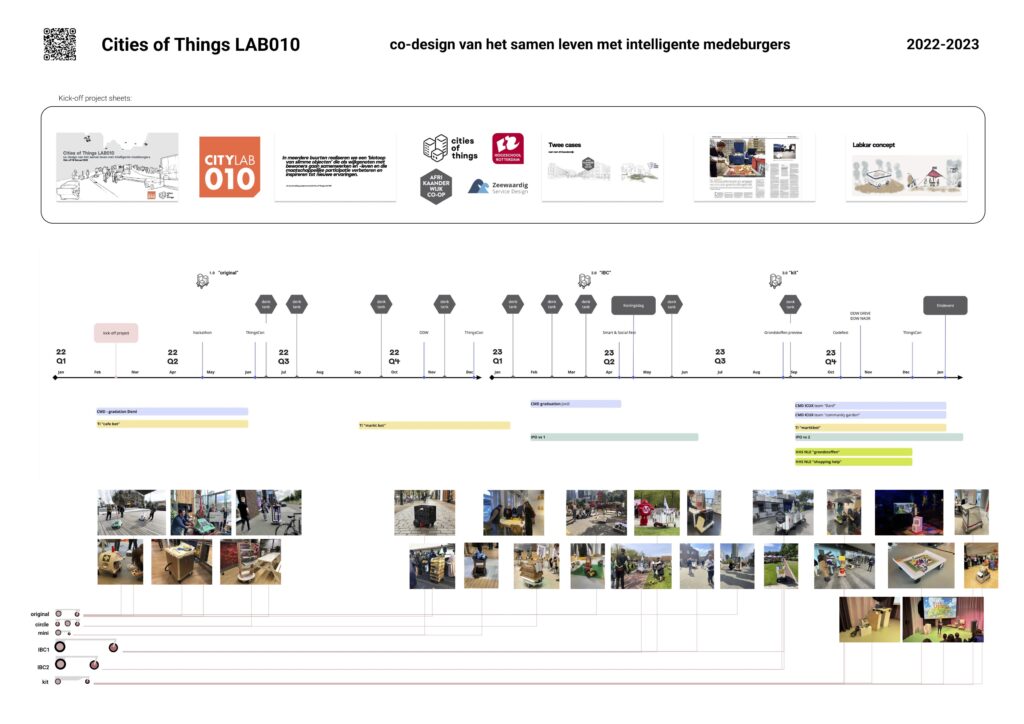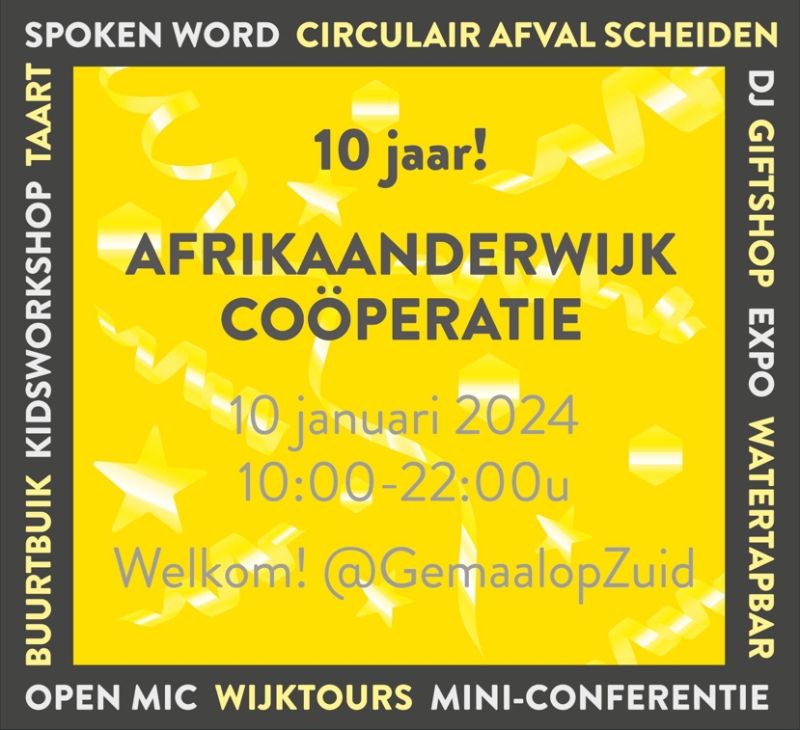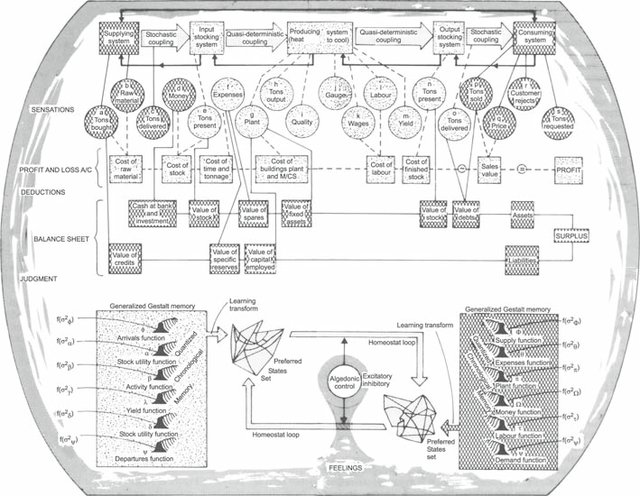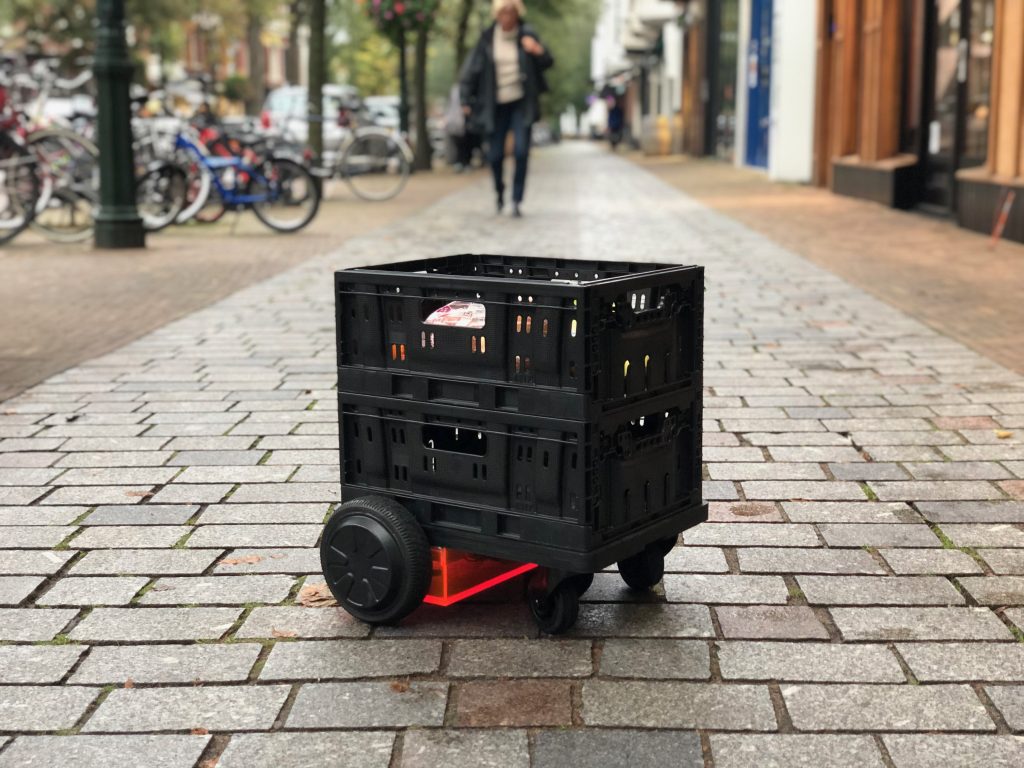Today -19 April 2024- four teams of students from the master program Industrial Design Engineering faculty of Delft University of Technology will present their first ideas and explorations of the relation of so-called neighborhood navigators for future citizenship as part of the Smart and Social Fest in Rotterdam.
The teams are part of the course Interactive Technology Design and chose Future Citizenship as the overarching theme for this year.
Interactive Technology Design is a project-based course within the Master (MSc) Design for Interaction programme at the Delft University of Technology. At the end of the course students deliver “experiential prototypes” in a public exhibition. The prototypes communicate students’ designs, and enable exhibition visitors to immersively experience the designed products and services.
https://www.tudelft.nl/io/samenwerken/studentenprojecten/interactive-technology-design
The four teams will present their first prototypes halfway through the program during Smart & Social Fest in VONK, the innovation center of the City of Rotterdam.
The Smart & Social Fest features Exploring Future Citizenship, an exhibition showcasing the ongoing creative endeavors of over 100 Industrial Design Engineering students from the TU Delft. This work-in-progress exhibition offers a glimpse into the creative explorations of students that merge AI technology with innovative ideas aiming to redefine urban citizenship.
The exhibition stands as a testament to the creative process — raw, unfiltered, and in flux. It invites scrutiny and critical dialogue, encourages poking and prodding at the boundaries between the digital and the physical. Each prototype and idea is an interrogation of what it means to belong to a city that is rapidly recalibrating to the rhythm of algorithms and data streams.
From the expo description.
We would like to explore whether the Wijkbot can be a proxy citizen in a neighbourhood, and if so, what that means for neighbourhood life. Will a community of civic robots interact on ‘another level’ representing human neighbourhood fabric? Those are some of the questions we had about commissioning the assignment.
In this assignment, the students are challenged to design “Neighbourhood Navigators”, autonomous robots intended to enhance community life by performing daily tasks and fostering social relationships among residents. Imagine robots operating from a neighbourhood hub, undertaking various responsibilities, from grocery shopping to assisting the elderly, thereby becoming integral participants in neighbourhood events and connectors within the community.
The assignment encourages you to think beyond conventional technology design, prompting you to envision a future where technology enhances neighbourhood citizenship, fosters community engagement, and promotes a sustainable and resilient urban environment. Through this project, you will contribute to reimagining how technology can be harnessed to create more inclusive, interconnected, and harmonious urban communities in the near future. In your design explorations you can make use of the “hoodbot” prototyping kit.
Taken from the assignment
We keep you updated on the results!
